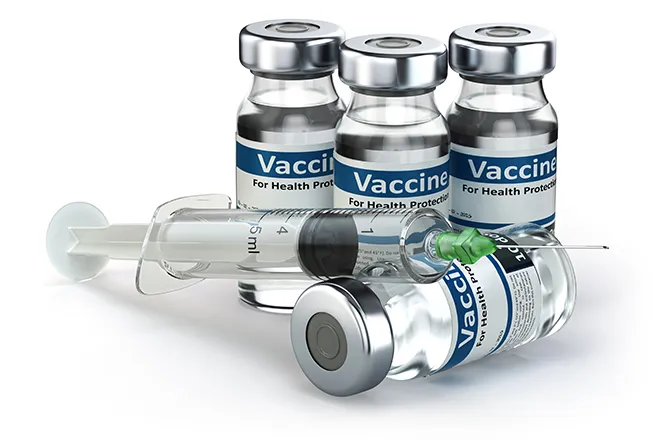
Influenza (the flu) is a Serious Illness, Especially for Older Adults
FACT: People 65 years and older are at high risk of serious flu-related complications.
People’s immune systems become weaker with age placing people 65 years and older at high risk of serious, flu-related complications. While flu seasons can vary in severity, during most seasons, people
65 years and older bear the greatest burden of severe flu disease. It’s estimated that between about 70 percent and 85 percent of seasonal flu-related deaths in the United States have occurred among people 65 years and older. For seasonal flu-related hospitalizations, people 65 and older account for between about 50 percent and 70 percent of the estimated total.
An annual flu shot is the best protection against the flu.
FACT: While flu vaccine can vary in how well it works, vaccination is the first and most important step in protecting against the flu.
Annual flu vaccination is recommended for all people 6 months and older. Vaccination is especially important for people 65 years and older because of their high risk status.
Studies have shown that flu vaccination can prevent flu illness and flu hospitalization. Also, vaccination can make your illness milder if you do get sick.
FACT: The side effects of flu shots are mild when compared to the disease itself.
After getting your flu shot, you may experience some mild side effects. The most common side effects include soreness, tenderness, redness and/or swelling where the shot was given. Sometimes you might have headache, muscle aches, fever, and nausea or feel tired.
The high dose and adjuvanted flu vaccines may result in more of the mild side effects that can occur with standard-dose seasonal shots.
Long-term medical conditions also can put you at high risk for serious flu complications.
FACT: The flu can make long-term health problems worse, even if they are well managed.
Diabetes, asthma, and chronic heart disease (even if well managed) are among the
most common long-term medical conditions that place people at high risk of serious flu complications. It is particularly important that all adults with these or other chronic medical conditions receive a flu vaccine every year.
FACT: There are prescription drugs that can treat influenza virus infections. People 65 and older should be treated with influenza antiviral drugs if they get the flu.
If you have flu symptoms--even if you have already had a flu shot--call your doctor, nurse, or clinic. Doctors can prescribe medicine, called antiviral drugs, to treat the flu and lessen the chance of serious illness. These medicines work better the sooner they are started. If you have any or all of the following symptoms, you might have the flu and should call your health care provider and tell them about your symptoms:
• Fever or feeling feverish/chills • Cough
• Sore Throat
• Runny or stuffy nose
• Muscle or body aches
• Headache
• Fatigue (tiredness)
• Sometimes diarrhea and vomiting
People 65 years and older can get any flu shot that is approved for use in that age group. There also are two vaccine options available for people 65 years and older that are designed specifically for them, to promote a stronger immune response.
1. A high dose flu vaccine (Fluzone® High-Dose) contains 4 times the amount of antigen as a regular flu shot. The additional antigen creates a stronger immune response (more antibody) in the person getting vaccinated.
2. An adjuvanted vaccine (FLUADTM) is standard dose flu vaccine with an added adjuvant. An adjuvant is an ingredient added to a vaccine to help create a stronger immune response to vaccination.
Flu shots are safe and do not cause the flu.
It’s very important that antiviral drugs be used early to treat flu in people who are very sick with flu (for example, people who are in the hospital), and people who are sick with flu and are at high risk of serious flu complications, like people 65 and older.
For more information, visit:
www.cdc.gov/flu
or call 1-800-CDC-INFO















